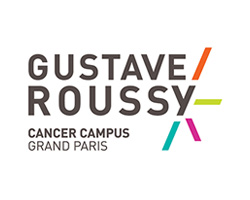Dietary intake of trans fatty acids and breast cancer risk in 9 European countries
Résumé
Background: Trans fatty acids (TFAs) have been hypothesised to influence breast cancer risk. However, relatively few prospective studies have examined this relationship, and well-powered analyses according to hormone receptor-defined molecular subtypes, menopausal status, and body size have rarely been conducted.
Methods: In the European Prospective Investigation into Cancer and Nutrition (EPIC), we investigated the associations between dietary intakes of TFAs (industrial trans fatty acids [ITFAs] and ruminant trans fatty acids [RTFAs]) and breast cancer risk among 318,607 women. Multivariable hazard ratios (HRs) and 95% confidence intervals (CIs) were estimated using Cox proportional hazards models, adjusted for other breast cancer risk factors.
Results: After a median follow-up of 8.1 years, 13,241 breast cancer cases occurred. In the multivariable-adjusted model, higher total ITFA intake was associated with elevated breast cancer risk (HR for highest vs lowest quintile, 1.14, 95% CI 1.06-1.23; P trend = 0.001). A similar positive association was found between intake of elaidic acid, the predominant ITFA, and breast cancer risk (HR for highest vs lowest quintile, 1.14, 95% CI 1.06-1.23; P trend = 0.001). Intake of total RTFAs was also associated with higher breast cancer risk (HR for highest vs lowest quintile, 1.09, 95% CI 1.01-1.17; P trend = 0.015). For individual RTFAs, we found positive associations with breast cancer risk for dietary intakes of two strongly correlated fatty acids (Spearman correlation r = 0.77), conjugated linoleic acid (HR for highest vs lowest quintile, 1.11, 95% CI 1.03-1.20; P trend = 0.001) and palmitelaidic acid (HR for highest vs lowest quintile, 1.08, 95% CI 1.01-1.16; P trend = 0.028). Similar associations were found for total ITFAs and RTFAs with breast cancer risk according to menopausal status, body mass index, and breast cancer subtypes.
Conclusions: These results support the hypothesis that higher dietary intakes of ITFAs, in particular elaidic acid, are associated with elevated breast cancer risk. Due to the high correlation between conjugated linoleic acid and palmitelaidic acid, we were unable to disentangle the positive associations found for these fatty acids with breast cancer risk. Further mechanistic studies are needed to identify biological pathways that may underlie these associations.
Origine : Fichiers éditeurs autorisés sur une archive ouverte



